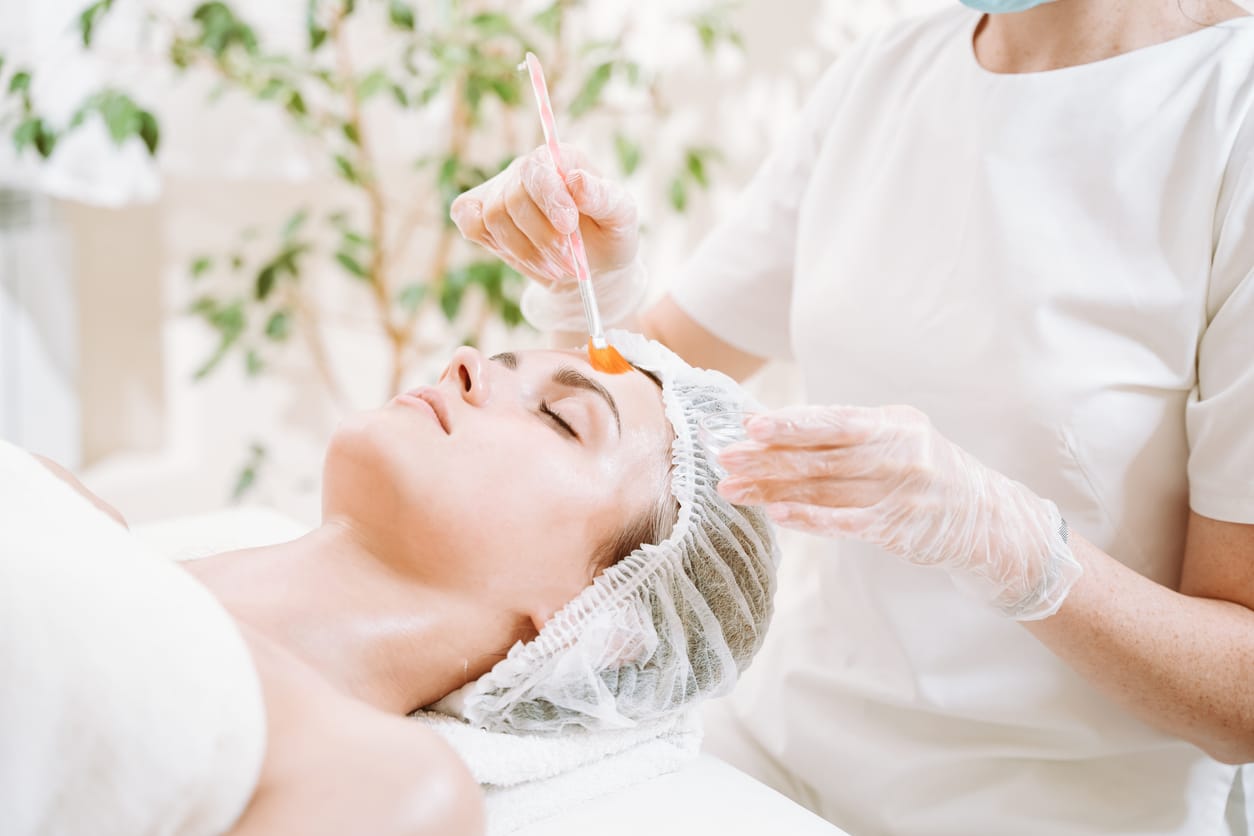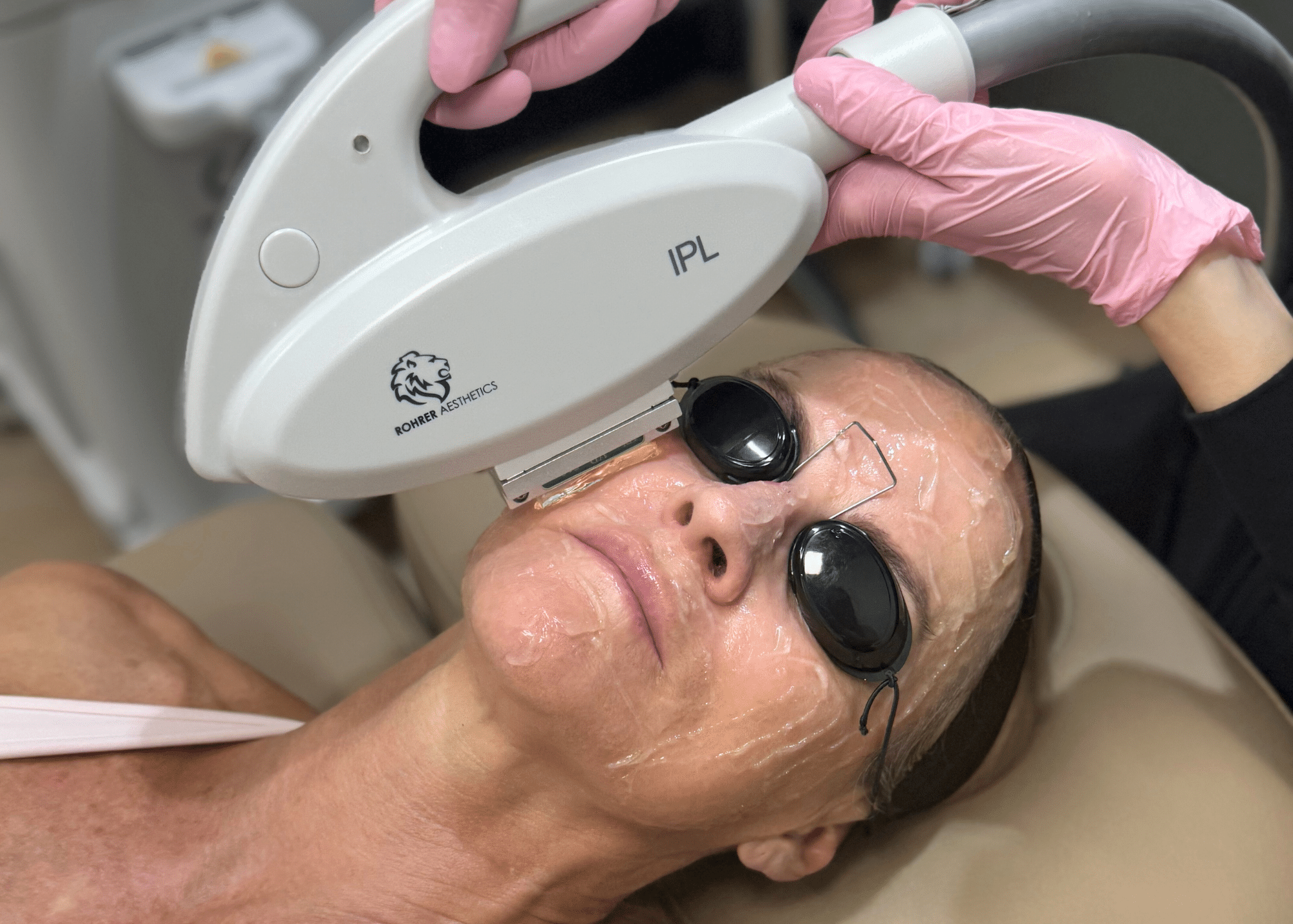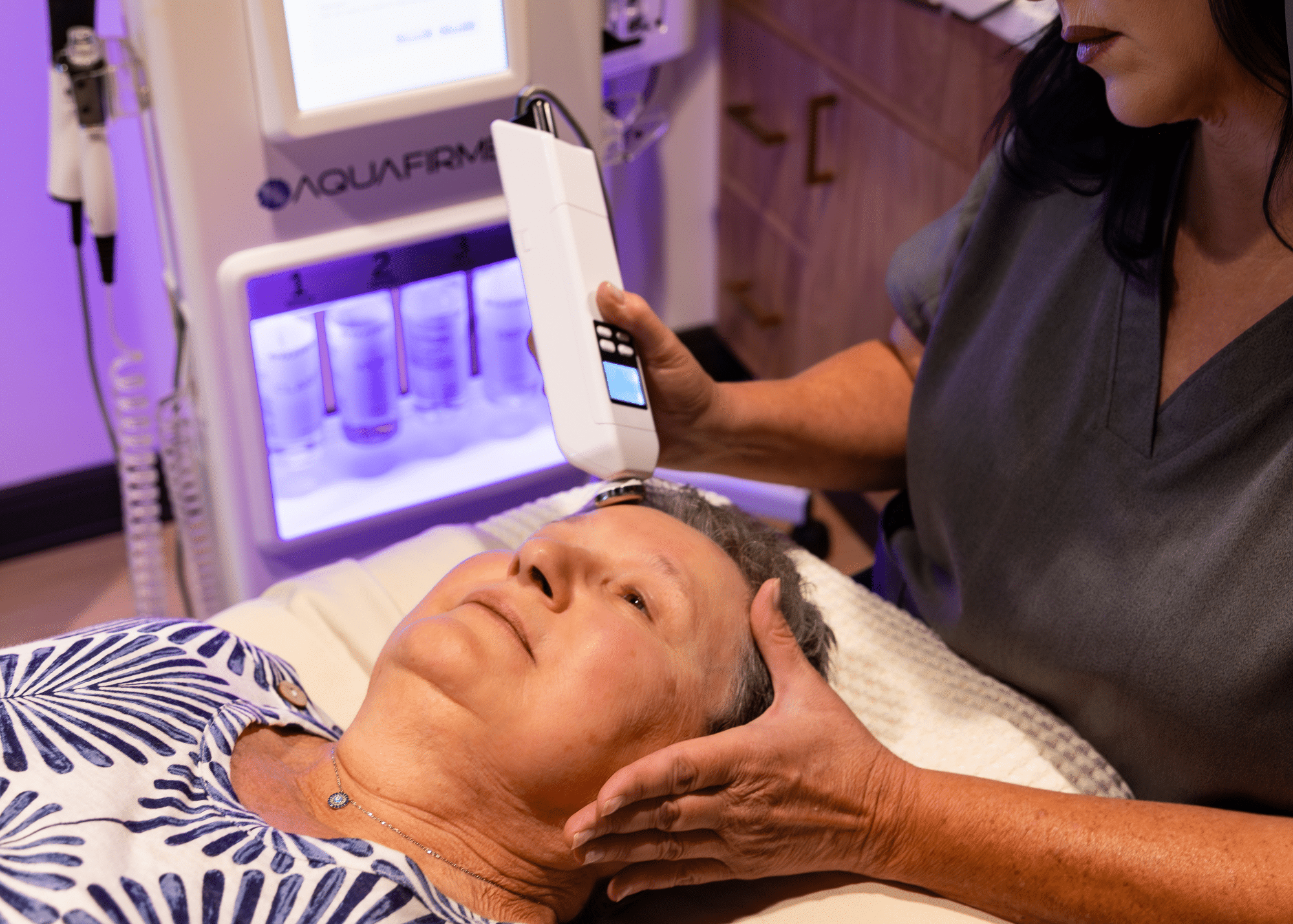If you’re looking for a radiant and glowing complexion, you might have considered chemical peels. These popular cosmetic treatments involve applying a chemical solution to the skin, causing it to exfoliate and eventually peel off. This process can help improve the appearance of the skin by reducing the appearance of fine lines, wrinkles, discoloration, and other skin concerns. However, not every chemical peel is suited for all types of skin.
For July, Halcyon Mind & Body will explore the various chemical peel options, their benefits, and how to choose the right one for your unique skin type and concerns.
Understanding The Three Types of Chemical Peels
Chemical peels can be categorized into three main types based on their depth of penetration: superficial, medium, and deep. Each type targets different skin concerns and has its own benefits and potential side effects.
Superficial Peels
These peels only penetrate the outermost layer of the skin (the epidermis). They are gentle and suitable for all skin types, including sensitive skin, and are primarily used to address concerns like dullness, fine lines, and mild discoloration.
Examples of Superficial Peels include alpha-hydroxy acids (AHAs) like glycolic and lactic acids, as well as beta-hydroxy acids (BHAs) like salicylic acid.
Medium Peels
Medium peels are more potent and can address more significant skin concerns like moderate wrinkles, acne scars, and moderate discoloration. These peels penetrate deeper into the skin, reaching the upper layers of the dermis. They may cause more noticeable peeling and require a longer recovery time than superficial peels.
Examples include trichloroacetic acid (TCA) and Jessner’s solution.
Deep Peels
Deep peels are the most aggressive and can address severe skin concerns like deep wrinkles, advanced sun damage, and precancerous lesions. They require the longest recovery time and have the highest risk of side effects, such as prolonged redness and swelling. These peels penetrate the deepest into the skin, reaching the lower layers of the dermis.
Phenol-based peels are the most common type of deep peels.
Chemical Peels For Every Type of Skin
Dry Skin
Chemical peels can significantly benefit dry skin, improving the appearance of dullness, flakiness, and fine lines. Gentle, hydrating peels containing ingredients like lactic acid or mandelic acid are often the best choice for dry skin types.
These peels can help remove the buildup of dead skin cells, allowing moisturizing products to penetrate better and promoting a more radiant, healthy-looking complexion. However, following a proper pre- and post-treatment regimen is essential to avoid excessive dryness or irritation.
Our Recommendations:
- Lactic Acid chemical peel
- Mandelic Acid chemical peel
Oily Skin
If you have oily, acne-prone skin, chemical peels can be a powerful tool in your skincare arsenal. Peels containing beta-hydroxy acids (BHAs), such as salicylic acid, are particularly effective in addressing the unique needs of oily skin.
BHA-based peels can help unclog pores, reduce excess oil production, and improve the appearance of acne and blemishes. They penetrate deep into the skin to dissolve the buildup of sebum, dead skin cells, and other impurities that can contribute to breakouts.
Start with a milder formulation and gradually work up to stronger concentrations as your skin becomes more accustomed to the treatment. Overexposure to potent peels can lead to increased dryness and irritation, ultimately worsening the appearance of oily skin.
Our Recommendation:
- Beta-hydroxy acids (BHAs)
Sensitive Skin
Trying any new skincare product can be a delicate balancing act for sensitive skin users. However, gentle options can provide the benefits of exfoliation without causing excessive irritation.
Superficial peels containing alpha-hydroxy acids (AHAs), such as lactic or mandelic acid, are often the best choice for sensitive skin types. These ingredients are gentler and less likely to cause redness, stinging, or peeling than stronger peels.
Our Recommendations:
- Lactic acid superficial peels
- Mandelic acid superficial peels
Answering Your Chemical Peel FAQs
Does Climate & Weather Affect the Results of a Chemical Peel?
Yes, the climate and weather can impact a chemical peel’s results and side effects. Colder, drier weather, like the climate in Colorado, can exacerbate the peeling, redness, and irritation that often occur after a chemical peel treatment.
In these conditions, the skin is more sensitive and prone to dryness, which can prolong the recovery process. Therefore, it’s important to take extra precautions, such as using gentle cleansers and moisturizers and avoiding excessive sun exposure, when getting a chemical peel in cold, dry climates.
Are Chemical Peels Dangerous?
When performed by a licensed and experienced professional, chemical peels are generally considered safe for most skin types. However, there are some risks involved, such as:
- Increased sun sensitivity
- Temporary redness, peeling, and irritation
- Potential for scarring or discoloration, especially in those with darker skin tones
- Allergic reactions to the chemical solution
Be sure to disclose your full medical history and any skin conditions to your provider to ensure the peel is safe for your unique skin type.
How Long Do The Effects Of A Chemical Peel Last?
The duration of the effects from a chemical peel can vary depending on the type of peel:
- Light Peels: The results from a light peel typically last 1-2 months initially and can last up to 6 months with repeated treatments.
- Medium Peels: Medium peels can produce results that last 2-4 months initially and up to 6 months or a little more with continued treatments.
- Deep Peels: Deep peels penetrate deeply into the skin and can provide near-permanent or even lifetime results. The effects of a deep peel can last for decades.
It’s important to note that the longevity of results also depends on factors like your skin type, aftercare, and whether you maintain the results with regular follow-up treatments.
Finding an Esthetician For Expert Chemical Peel Application
Chemical peels can be transformative for your skin, but they also pose the risk of worsening your concerns or even causing irritation on the skin. Working with a trusted esthetician will ensure that you choose safe and effective products that bring results.
At Halcyon, our experienced and licensed estheticians are experts in administering various chemical peel treatments tailored to your unique skin concerns. No matter what skin goals you have, our team can perform an in-depth skin analysis to determine the optimal peel depth and formulation to achieve your desired results. Take the first step towards revitalized skin by booking your appointment today.
_____________________________________________________________________________________
Find Your Glow: Discover the Magic of Chemical Peels at Halcyon Mind+Body in Superior, CO!
Ready to reveal a radiant, rejuvenated complexion? Experience the transformative power of customizable chemical peels at Halcyon Mind+Body in Superior, CO. Our team is dedicated to helping you achieve healthy, glowing skin through safe and effective chemical peel treatments tailored to your unique skin type and concerns.
Let us guide you toward a brighter, clearer complexion – book your chemical peel session with us today and embark on a journey to radiant skin.
Contact us to get started at Halcyon Mind and Body today!




